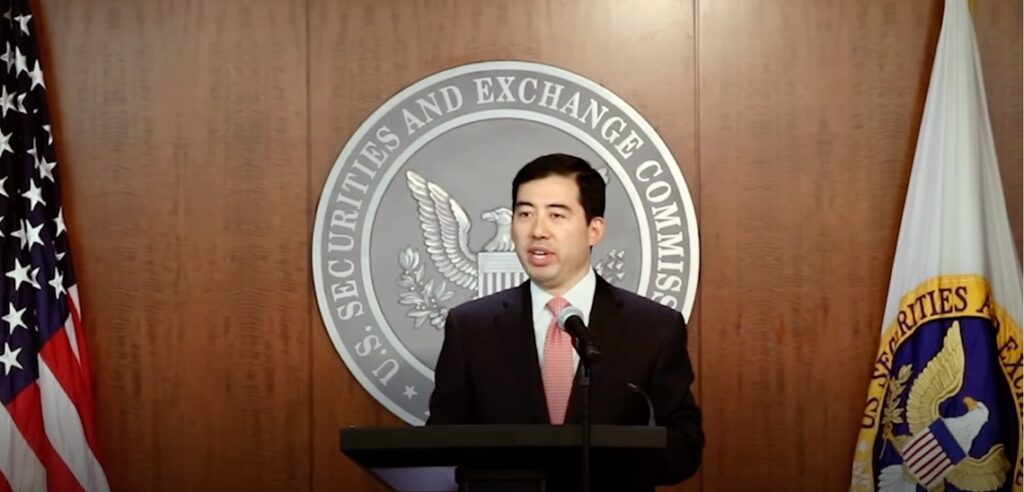New SEC Leadership Set to Reform U.S. Crypto Policy

The U.S. Securities and Exchange Commission (SEC) is gearing up to overhaul its cryptocurrency policies under the leadership of President Donald Trump’s administration.
On this page
According to a January 15, 2025 report from Reuters, significant changes to cryptocurrency regulation could begin as early as next week. These updates are likely to include the development of new guidelines clarifying the classification of digital assets.
A Change in Leadership
President Trump’s nomination of Paul Atkins as SEC Chair marks a clear departure from the strict crypto policies implemented by outgoing Chair Gary Gensler. Atkins, a known advocate for cryptocurrency innovation, is expected to guide the SEC toward a more balanced and less punitive regulatory approach.
Starting next week, Republican commissioners Hester Peirce and Mark Uyeda will hold a majority at the SEC, positioning them to begin revising crypto regulations even before Atkins is confirmed by the Senate.
Peirce and Uyeda, who previously collaborated with Atkins during his earlier tenure at the SEC, are known supporters of a transparent and measured approach to crypto regulation. Reports suggest they have already initiated discussions on policy reforms aimed at simplifying compliance and fostering innovation in the cryptocurrency market.

Source: WSJ
Clarifying the Status of Cryptocurrencies as Securities
A major challenge for the SEC is defining the conditions under which cryptocurrencies are classified as securities.
This issue was central to several high-profile legal cases during Gary Gensler’s tenure, including lawsuits against Coinbase and Kraken over alleged securities law violations. Many in the industry contend that cryptocurrencies function more like commodities than securities, emphasizing the need for clearer and more consistent regulations.
Hester Peirce and Mark Uyeda are expected to launch a public consultation process to gather input from industry leaders and other stakeholders.
Reviewing Legal Cases
The SEC is expected to reevaluate its ongoing cryptocurrency-related cases. Cases without fraud allegations or where the classification of tokens as securities remains contentious could be suspended or even dismissed.

Source: CSO Futures
During Gary Gensler’s tenure, the SEC filed 83 lawsuits involving cryptocurrencies, often citing concerns over fraud and market manipulation. However, critics have argued that this aggressive stance has fostered regulatory uncertainty, hindering innovation in the cryptocurrency sector.
Reforming Accounting Standards
The SEC is expected to revisit accounting rules that have made cryptocurrency holdings excessively costly for public companies. These potential changes aim to lower barriers for businesses looking to engage with digital assets.
Trump’s Comprehensive Crypto Agenda
During his presidential campaign, Donald Trump branded himself as the “crypto president,” garnering strong support from the industry. It is widely anticipated that he will issue executive orders urging regulators to adopt a more favorable stance on cryptocurrency policies.
However, despite the optimistic outlook, establishing a comprehensive regulatory framework for cryptocurrencies is likely to take months or even years. Resolving complex legal cases and reaching a consensus on the classification of securities will continue to pose significant challenges.
A New Chapter in Cryptocurrency Regulation
The transition to President Trump’s administration and the new SEC leadership signals a turning point for cryptocurrency regulation in the United States.
With Paul Atkins, Hester Peirce, and Mark Uyeda at the helm, the SEC is expected to take a more open and transparent approach to regulating the crypto market. However, the ultimate success of this shift will hinge on achieving a delicate balance between encouraging innovation and safeguarding investor interests.
The content on The Coinomist is for informational purposes only and should not be interpreted as financial advice. While we strive to provide accurate and up-to-date information, we do not guarantee the accuracy, completeness, or reliability of any content. Neither we accept liability for any errors or omissions in the information provided or for any financial losses incurred as a result of relying on this information. Actions based on this content are at your own risk. Always do your own research and consult a professional. See our Terms, Privacy Policy, and Disclaimers for more details.
























